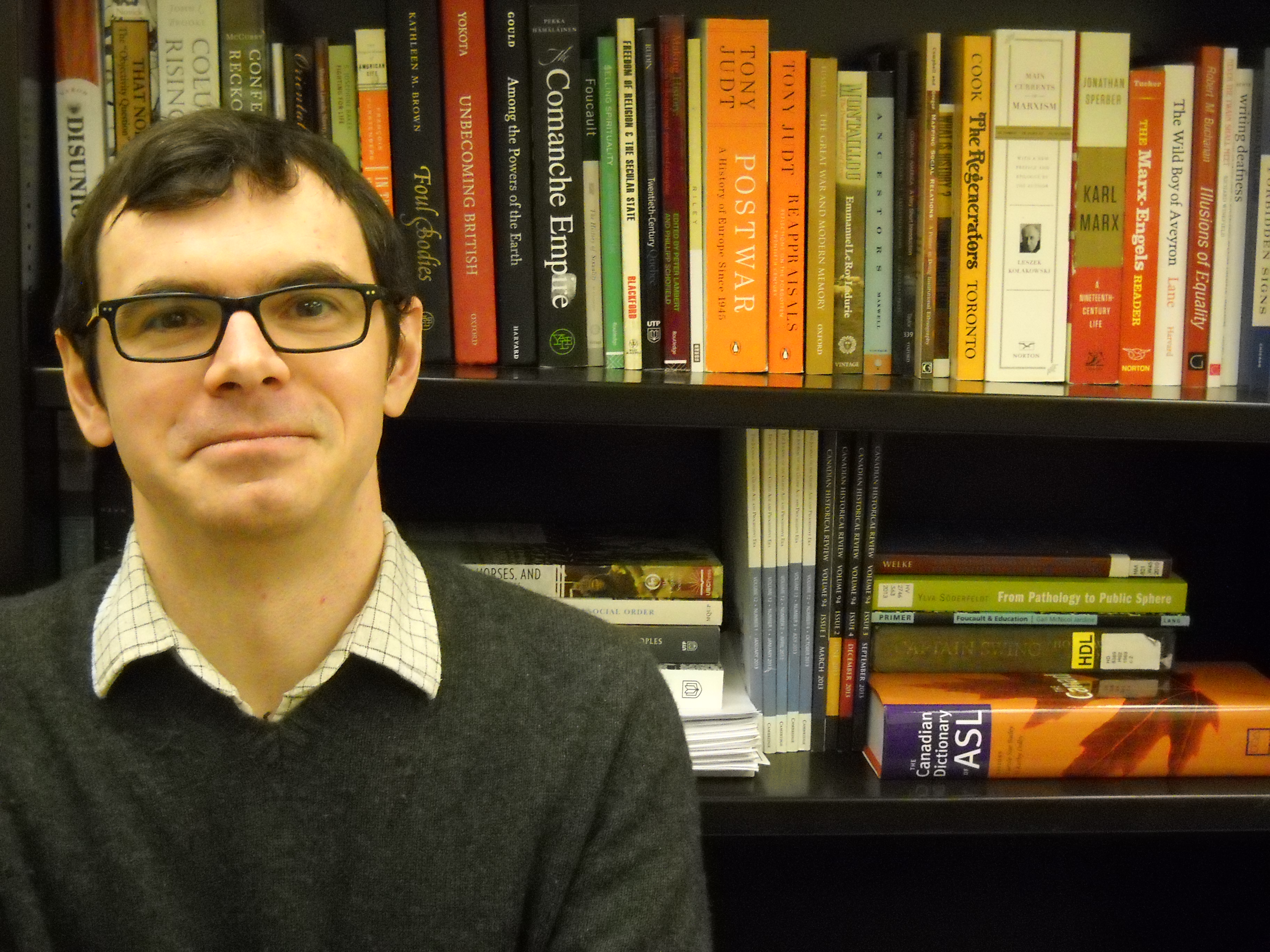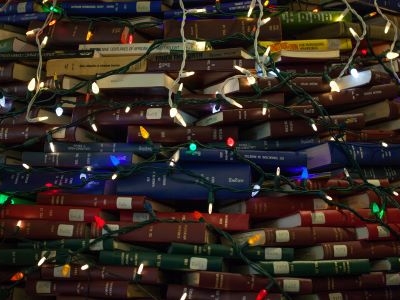PhD Student Sandy Barron is focusing on disability history in Canada – an emerging field that is exploring not only the experiences of people with disabilities, but also how disability challenged and changed social and political life for everyone.
“People with disabilities and Deaf people were at the forefront of developing educational and social institutions that we now take for granted, both as recipients and political activists,” said Barron.

Barron is looking at how the politics around education of youth with sensory disabilities (such as deafness and blindness) were more local than national, and very influenced by American models.
“I am also interested in the emergence of Deaf communities in Brandon and Winnipeg – specifically in histories of labour in the printing industry, and how Deaf people advocated for their own political inclusion,” said Barron.
Barron’s article The World is Wide Enough for Us Both: The Manitoba School for the Deaf at the Onset of the Oralist Age, 1889-1920 was published recently in the Canadian Journal of Disability Studies.
“The paper argues that oralism – which means banning sign language in schools and teaching speech/lip reading – was not implemented at the Manitoba School for the Deaf until much later than other Canadian and American schools,” said Barron.
Barron is in the preliminary stage of his research for his PhD in History. He wants to explore other research questions such as:
- How were deaf and blind children seen in Western Canada – as future citizens who were endangered by deafness or disability or were they seen as potential dangers to communities’ future fiscal health?
- How did deaf and blind people see Western Canada?
- Why did deaf education emerge in Manitoba by 1888 but not blind education?
- Why did neither deaf nor blind education emerge in Alberta or Saskatchewan until the 1930s?
- What sorts of politics drove these decisions?
Barron graduated from Mount Allison University with a BA in Sociology/Anthropology in 2002. From 2006-2014 he worked at an educational clinic in Calgary, where he worked with and was responsible for delivering programs to students who experience a range of learning difficulties and disabilities.
Because of this experience, this research is incredibly important to him.
“It was at the clinic that I learned that finding ways to help students often meant looking beyond any coding or diagnosis that they may have been saddled with,” said Barron.
Barron went on to complete a Master’s degree in History at the University of Calgary where he studied the early years of the Manitoba School for the Deaf.
After he completed his MA, Barron then came to Carleton where he has been impressed with the History department.
“The History Department here at Carleton is very strong in Canadian history, at a time when some departments elsewhere are drawing back the number of courses offered in the field,” said Barron.
“It is an incredibly open and supportive environment, which is really important in an immersive, multi-year program.”
Barron’s supervisors are Dr. Dominique Marshall and Dr. Kristin Snoddon.
In the future, Barron would like to continue researching and teaching in the fields of History and disability after his time at Carleton.
–Written by Mitch Jackson
Friday, March 17, 2017 in Grad Student Research, News
Share: Twitter, Facebook



